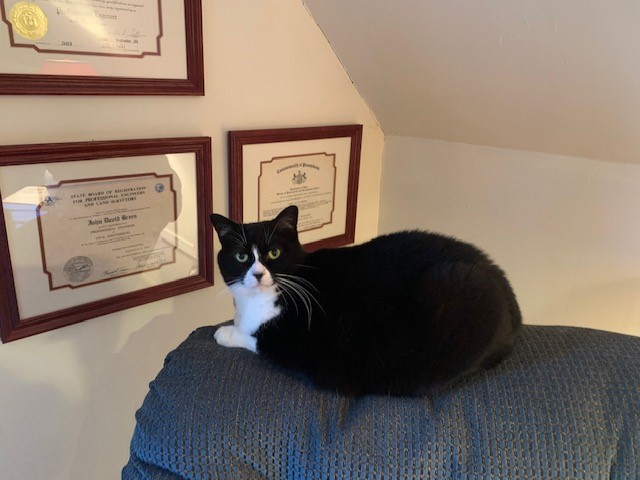The Rise of the Lilliputians

Atlanta, GA
February 4, 2021
A couple days ago, in western Pennsylvania, the groundhog was coaxed from his hole. Last week, in lower Manhattan, bigger game was smoked from its lair.
Wall Street puppeteers routinely pull strings of their Washington marionettes…to enhance their power, fatten their wallets, and fleece the little people. But suddenly…unexpectedly…the Lilliputians grabbed the rope, and had Gulliver crying for help.
From Punxsutawney, we were told to expect six more weeks of winter. Frigid temperatures have made themselves at home in north Georgia too. Cold days and freezing nights keep us indoors. The last few mornings, we’ve shunned our walk, and let Rocky sleep in.
With the dog off stage, the cat steals the scene. Most days, as the sun rises, I grab my coffee, find my chair, and open my book. Often Oreo, one of our cats, settles comfortably at my side or on my lap. Within a few minutes, she starts purring, and dozes off.
But a few mornings ago, she was out of sorts. She caught a glimpse of the Wall Street Journal, and seemed confused. Why, she wondered, would anyone buy shares of a washed-up video game outlet with few customers and no profits? It made no sense.
I felt terrible. I closed my book and set it aside. I realized I had neglected one of the few essential responsibilities of pet ownership.
Oreo has been with us for ten years. She has been well fed, her litter box kept clean, and her annual shots are up to date. But, in all the time she’s been with us, I’d yet to explain to her the mechanics of a short sale.
I started by assuring her that short selling is a perfectly legitimate, economically reasonable, and socially beneficial practice in a properly functioning market. It communicates information, provides liquidity, and mitigates volatility.
The process isn’t complicated. The short-seller borrows shares of stock he thinks are overvalued, sells them to someone who thinks the opposite, and hopes they fall in price. If they do, he buys them at the lower rate, and pockets the difference as his profit.
No problem.
Unless he is wrong. Or, even if he is right about the stock, but wrong about the timing. As Keynes reputedly said, the market can stay “irrational“ longer than most people can stay solvent.
For various reasons, the price even of a decrepit stock can go up. In that case, our short sellers must buy it back for more than they sold it, which “squeezes” the shorts, and pushes the stock higher still. Eventually, the short-sellers succumb to the vise, sound the retreat, and abandon the field.
But sometimes, the short seller is a well-heeled hedge fund. In that case, he digs into his pocket, and pulls out his Senator. Or he hits his speed-dial and calls the Fed. Then, from them both, he demands a bailout. And, more often than not, he gets it.
Cats are as cynical and jaundiced as they come…but Oreo was stunned. I had indeed waited too long to have this talk. Naïveté had blossomed where skepticism should’ve taken root. Our feline was under the impression that all markets are free…that every profit is earned, each loss is suffered, and all lessons are learned. After all, isn’t this America?
“Yes”, I assured her, “that is much of America. But this is Wall Street. And Washington. Since the days of Alexander Hamilton and Gouverneur Morris, this is the way palm greasing, back-scratching, and corporate cronyism were designed to work: use your government contacts to chisel, connive, cheat, and steal. Hedge funds and investment banks do this all the time.”
But they often do more than that. Rather than bother to borrow shares to short, they simply skip that step, and sell shares they don’t have. On Wall Street this is known as “naked shorting”. In most other places, it is known as “fraud”. In any event, last week the naked shorts got caught with their pants down.
Startled, Oreo sprung to her feet, and began to sprint from the chair. I called her back, thinking she might appreciate the way this story ends. She returned skeptically, assumed the seat she had recently fled, and looked up warily as I continued the tale.

George Soros once said that the key to successful speculation is to find a trend whose premise is false…and bet against it.
GameStop checked all the boxes. Bricks-and-mortar retailer, minimal e-commerce presence, incessant online competition, and governments prohibiting customers from coming into its stores. Sounds like a smoldering dumpster fire, a recipe for disaster…and an ideal short. And it was.
If not for the Lilliputians.
Since 2008, Millennials had been licking their wounds. For years prior to that, the Federal Reserve had counterfeited currency, disfigured credit, and distorted markets. Capital was misallocated, mal-invested, and wasted. Interest rates were forced down, like a beach ball under water. House prices went to the rafters, and thru the roof. Then, they crashed, and plummeted into the basement.
Collateral evaporated, loans went bad, and liquidity dried up. Jobs were lost, and employment offers were rescinded. But, like the smell of cigarette smoke on a wool scarf, student loan debt doesn’t go away.
Those most impacted were the young who, on the advice of their elders, accumulated useless degrees and insurmountable debt, and then lost their prospects by the actions of their “leaders”.
Meanwhile, the Fed printing press went into overdrive, pushing interest rates thru the floor, and pouring cash to the coffers of the financial industry. The stock market soared as the job market sank.
Big banks were saved and investment houses were rescued. Weekend parties resumed in the Hamptons. Cocktail parties continued in Georgetown. Meanwhile, across the land, college graduates curled up on fold-out sofas in their parents’ basement, chilly under a thick blanket of un-payable debt.
By now, the cat had stopped purring. But her owner kept talking.
Over next decade…while bankers, brokers, and politicians wallowed at the Fed’s trough…the Millennials simmered on the back-burner. Eventually, if the heat weren’t turned down, they would boil over.
By 2020, a corner seemed to have been turned. Millennial employment was up. Marriages and homeownership were on the rise. Cities were bustling, and opportunity beckoned.
Then, another bomb went off. Using a molecule as a club, our rulers again pummeled the rising youth, while enriching their encrusted cronies and billionaire benefactors.
Young people, who were at little risk of transmitting or suffering from the only germ that suddenly seemed to matter, were for scientifically spurious reasons kept off the streets, out of bars, perpetually unemployed, away from each other, and under a mask. Meanwhile, the stock market again ascended to all-time highs.
Millennials…after being sacrificed in 2008…could be forgiven for thinking they had once again been tossed into the volcano.
So one cohort decided to erupt. They logged onto Reddit, where they shared news of a woebegone company in the cross-hairs of hedge funds that had gotten wealthy at their expense. They decided to fire back.
The financial sector is among the most heavily regulated industries on the planet. As with most regulations, these are meant not to protect individual investors, but to shield connected incumbents and shackle ambitious upstarts. The big players work the refs to rig the rules, and use them to shift other people’s points to their side of the board. Last week, several large hedge funds were beaten at their own game.
Noticing that these Gullivers had shorted 40% more shares of GameStock than had been issued by the company, the Lilliputians grabbed their rope, and brought them down. After the big funds sold shares for their naked shorts, a host of little people started buying. And buying. This pushed price up, forcing the shorts to cover their positions, which accelerated the increase. After selling low, they were buying high, and losing billions. As the rope tightened, the shorts ran out of breath.
A few days later, brokerages (including the ironically-named “Robinhood”) limited buying (but not selling), buyers took profits, and the inevitable collapse commenced. After rising a few thousand percent, the GameStock tsunami retreated from its heights, carried billions out to sea, and quietly resumed its earlier evaporation.
One financial advisor described the vengeful Lilliputians as bugs hurling themselves into the windshield…just to inconvenience the driver when he has to wipe them off.
That’s essentially correct. Many of these renegades are motivated not by greed, but by wrath. As one of them put it,
“..we are driven by hatred for Wall Street and its rigged contests.
Wall Street has the referee and the judges in its pay. It even has the commissioner. It has sugared them all with monetary inducements.
We are out for them all — boxer, referee, judges, commissioner.
…I am out for blood. I am not alone. There are six million of us. And our ranks are growing. We will swamp them.
Now we are taking on the heavyweight division, the major banks…”
Whoa.
The sentiment is understandable, and the goal may be laudable. Yet the task is tall…and memories are long. Hedge funds are one thing. They’re like the salt around the edge of the glass. Nice, but not necessary. Big banks are another matter entirely. It won’t be so easy to take the tequila from the Deep State margarita.
The Establishment won’t just stand by and let the little people rob them of little people’s money. After all, they stole it fair and square. They’ll circle the wagons, pass laws, and do all they can to protect “the system”, while sanctimoniously “saving the small investor” from himself. Besides, even in this episode, many hedge funds did just fine. Lilliputians or not, every market has two sides, and Gulliver is large enough to have a foot on each.
But if nothing else, the Lilliputians have done more to regulate the financial sector than any of the agencies the government has ever established (ostensibly) to do so. In three days, these little guys have re-acquainted Wall Street with the concept of moral hazard. This was a real free market applying some overdue discipline to a fake one.
On that note, I stopped my story. Then the cat woke up, and started to purr.
JD



